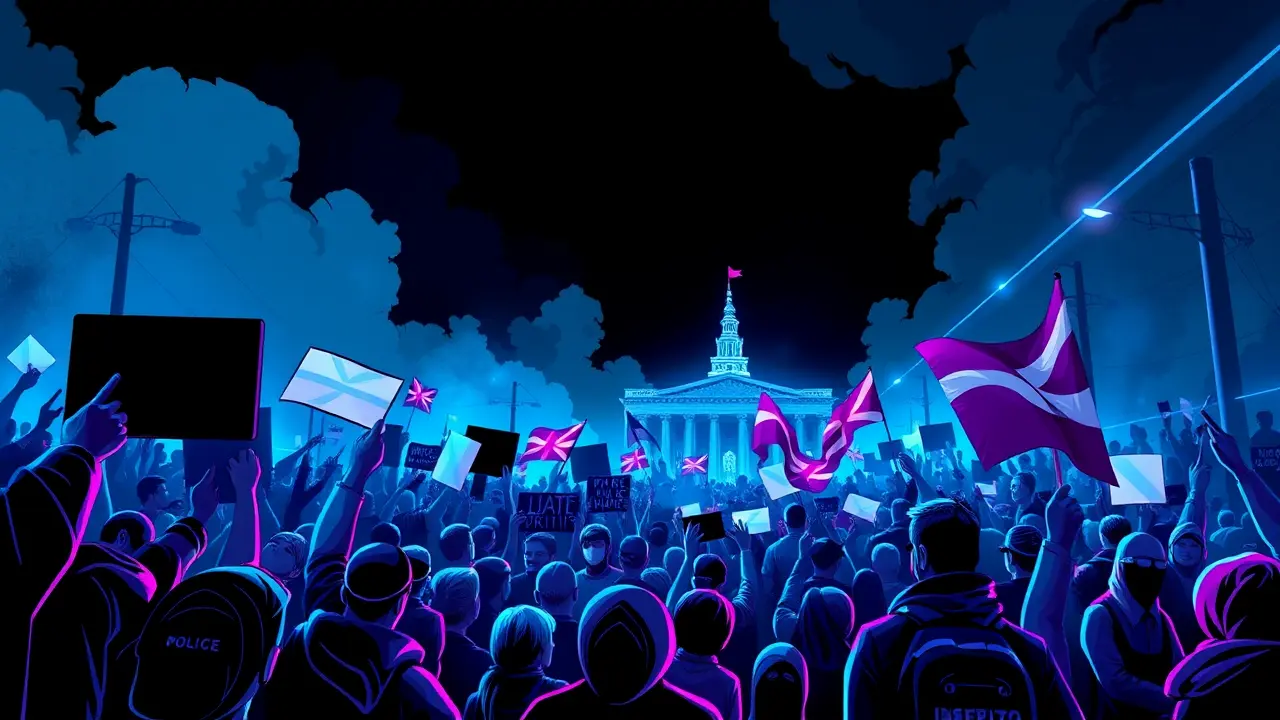- News
- protests-movements
- Here’s what you need to know about Starmer’s illiberal protest curbs: they would have killed the Labour party at birth | George Monbiot
Here’s what you need to know about Starmer’s illiberal protest curbs: they would have killed the Labour party at birth | George Monbiot
The very foundations of British democracy are trembling under the weight of a proposed legislative assault that threatens to sever the nation from its own revolutionary history. Imagine, for a moment, a movement so potent, so disruptive, that it sought to fundamentally overthrow the established order.Picture its genesis not in polite petitions, but in raw, unyielding rebellion—factories in Scotland and the coal mines of south Wales grinding to a halt as workers, armed with nothing but conviction and sometimes crude weapons, faced down police and soldiers. Envision roadblocks choking transportation, sieges laid upon prisons holding fellow dissidents, and government buildings surrounded by the unwavering resolve of the people.This was not a hypothetical scenario; this was the birth pangs of the Labour movement itself, a force that once deployed the very tactics now deemed too dangerous for modern Britain. The machinery of industry wasn't just protested against; it was physically smashed, disabled, rendered useless in a nationwide campaign of direct action.The crescendo was a general strike of such magnitude that it froze the UK's economic heart for three relentless months, a testament to power built not in Westminster committee rooms but on picket lines and in occupied squares. To propose, as the current government does, a suite of illiberal protest curbs is to wilfully forget that the political party now in power owes its very existence to the kind of sustained, disruptive civil disobedience it now seeks to criminalize.These rights we casually enjoy—the right to assemble, to strike, to challenge authority—were not gifts bestowed by a benevolent state; they were prizes wrested from its grasp through struggle, through the kind of repeated, targeted protests that gradually, inexorably, eroded the state's resistance. The peril we face today is not abstract; it is a deliberate amnesia, a severing of the Labour party from its own radical soul.To outlaw the methods of its own creation is a profound historical contradiction, a move that would have ensured its own stillbirth. The reports from the front lines of current protest movements—the climate activists gluing themselves to roads, the Palestine solidarity marches flooding city centers—already show a state apparatus eager to test these new limits.Legal observers document a sharp increase in pre-emptive arrests and the aggressive use of existing public order laws, a chilling preview of a future where dissent is managed, corralled, and ultimately neutralized. This is not merely a policy shift; it is a redefinition of the social contract, one where the state's monopoly on power goes unchallenged.The consequences ripple far beyond any single issue or political party; they strike at the core of a functioning democracy, where the ability to say 'no' loudly, disruptively, and persistently is the final, essential check on power. Without it, we are left with a hollowed-out polity, a democracy in name only, where the ghosts of the movements that built our world would be unwelcome, illegal, and imprisoned.
JA
Jamie Carter123k2 days ago
they want to outlaw the very thing that gave them breath it's like silencing the river that carved the valley
0
JA
Jamie Wilson123k2 days ago
wait so the gov wants to ban the same stuff that got them started smh idk about this tbh
0
